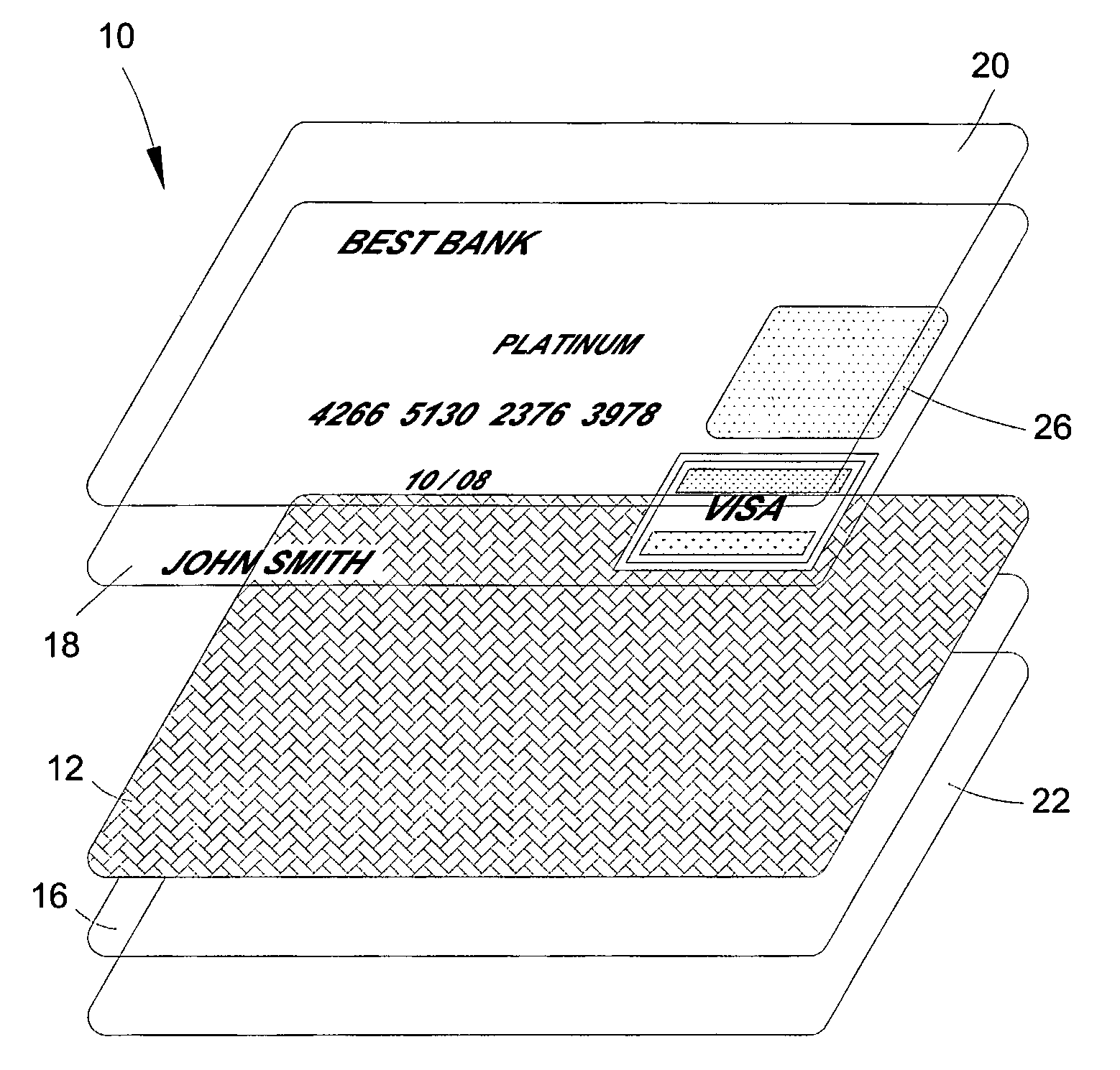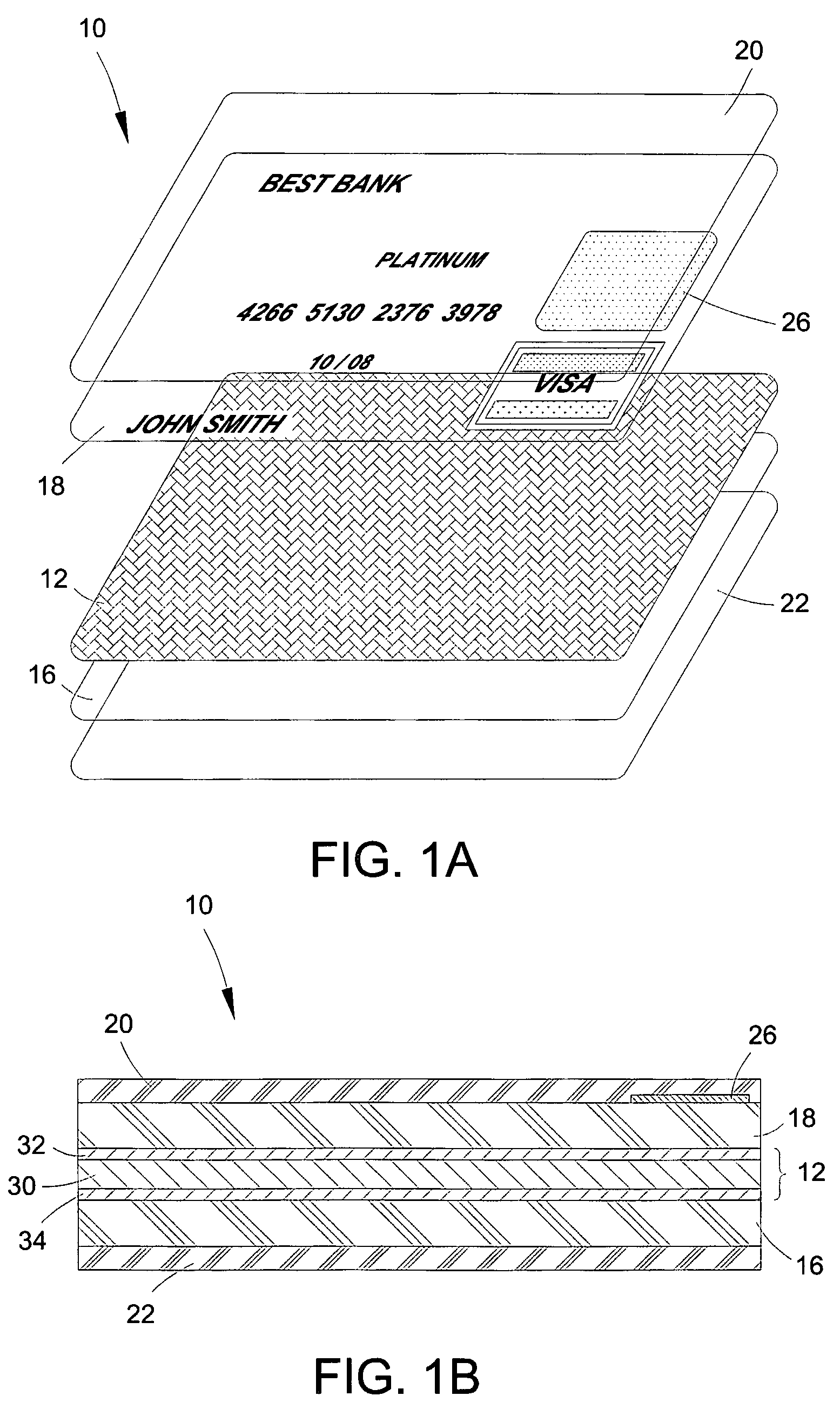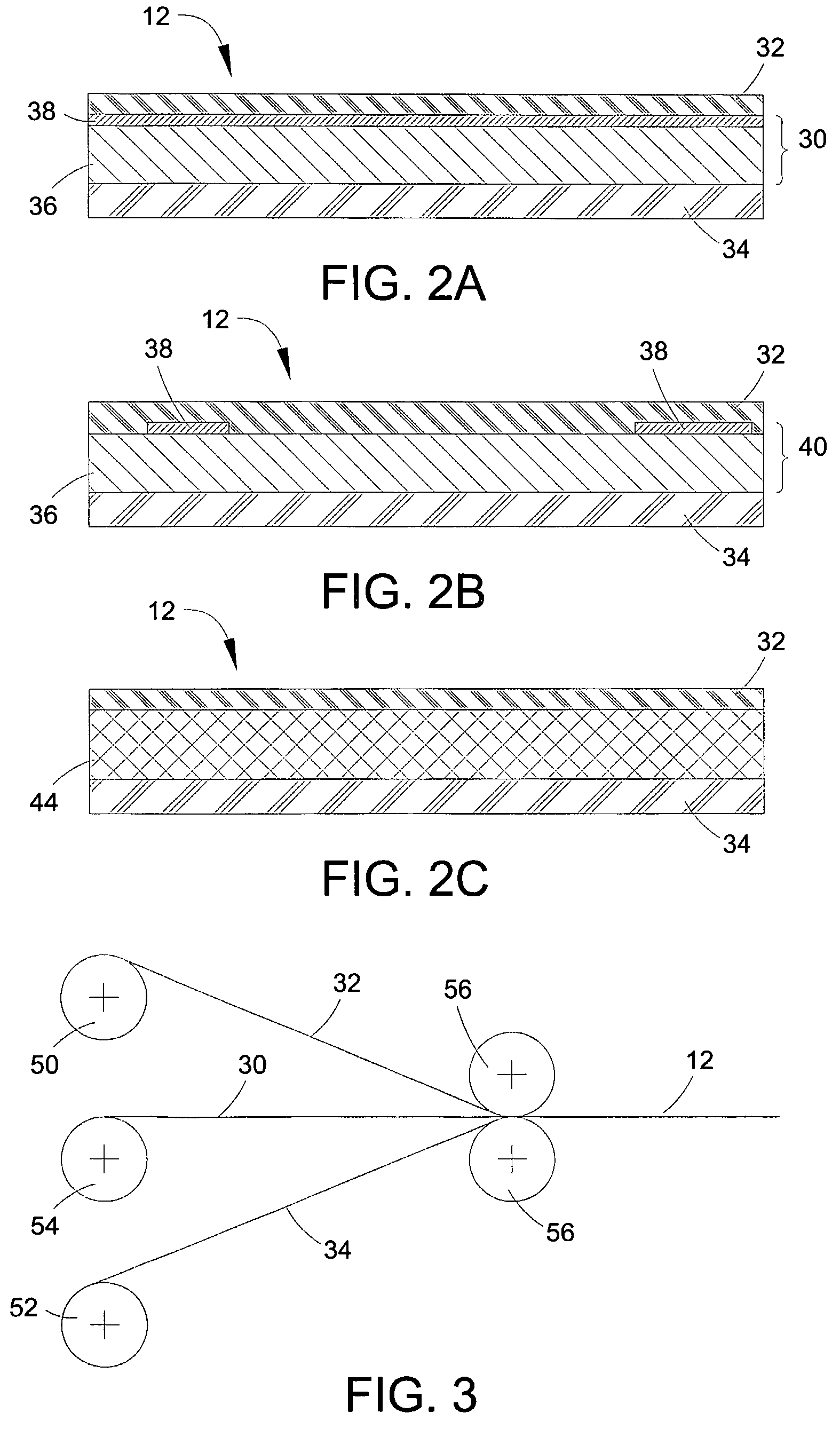Multi-layer cards with aesthetic features and related methods of manufacturing
a multi-layer card and aesthetic technology, applied in the field of multi-layer cards, can solve the problems of wasting expensive components, unable to copy images successfully, and the known methods of manufacturing laminated cards with metal layers, such as split core process and solid core process, can achieve the effect of minimizing the number of layers, avoiding waste of resources, and easy incorporation
- Summary
- Abstract
- Description
- Claims
- Application Information
AI Technical Summary
Benefits of technology
Problems solved by technology
Method used
Image
Examples
Embodiment Construction
[0031]A key aspect of the present invention involves the manufacturing of multi-layer cards with aesthetic and / or functional features, for example, banking, access, or identification cards, that include a bearing layer formed by an effects layer disposed directly between two core layers. Among other potential benefits, various embodiments of the invention lead to reducing overall manufacturing costs, as compared to methods known in the art, by (i) facilitating a balanced card construction while minimizing the number of layers formed from relatively expensive materials, and (ii) avoiding direct imaging of the effects layer and minimizing waste associated therewith. In addition, enclosing the effects layer between two core layers simplifies further processing of the card and facilitates reliable incorporation of the effects layer into the multi-layered structure with minimal expenditure of resources and reduced possibility of waste.
[0032]Throughout the description, where compositions ...
PUM
 Login to View More
Login to View More Abstract
Description
Claims
Application Information
 Login to View More
Login to View More - R&D
- Intellectual Property
- Life Sciences
- Materials
- Tech Scout
- Unparalleled Data Quality
- Higher Quality Content
- 60% Fewer Hallucinations
Browse by: Latest US Patents, China's latest patents, Technical Efficacy Thesaurus, Application Domain, Technology Topic, Popular Technical Reports.
© 2025 PatSnap. All rights reserved.Legal|Privacy policy|Modern Slavery Act Transparency Statement|Sitemap|About US| Contact US: help@patsnap.com



